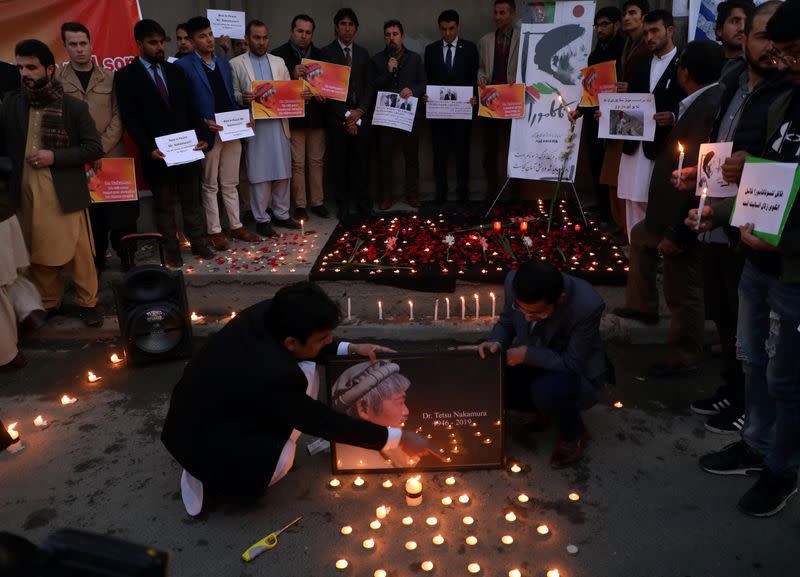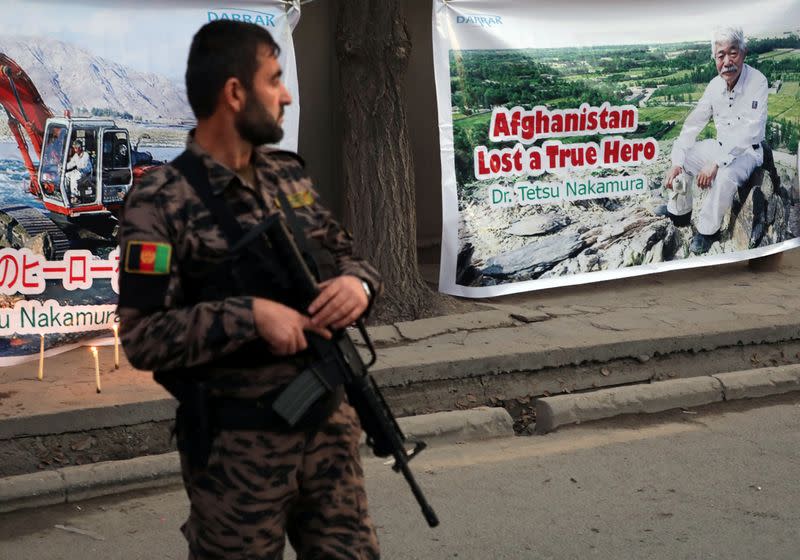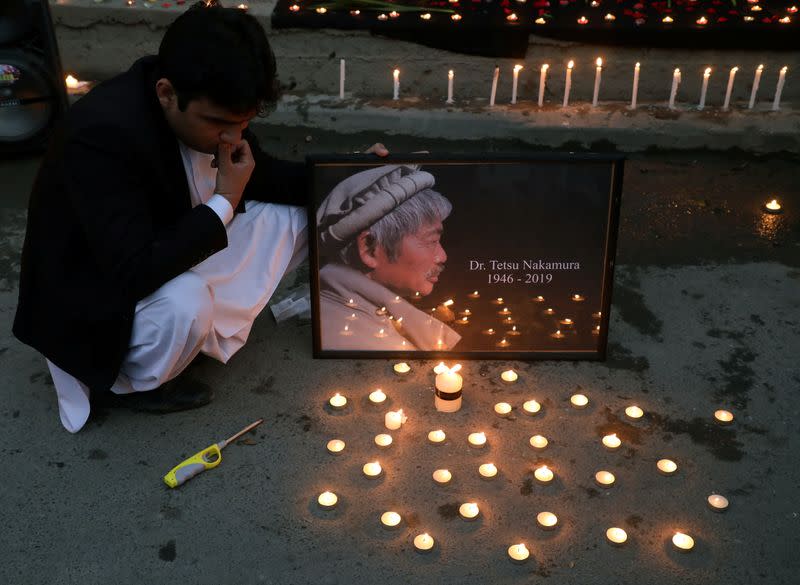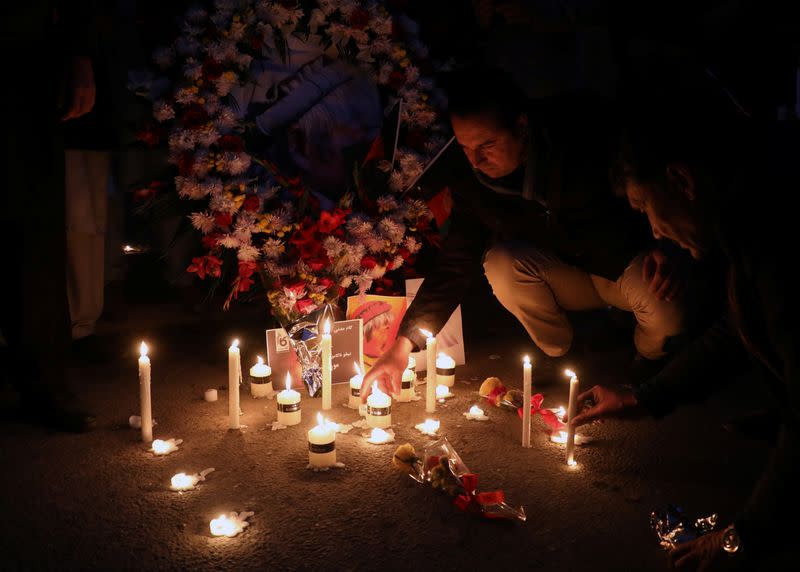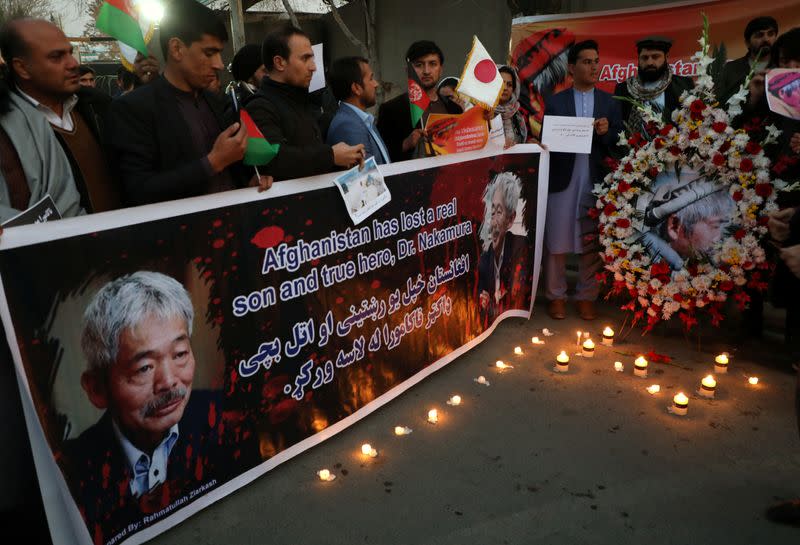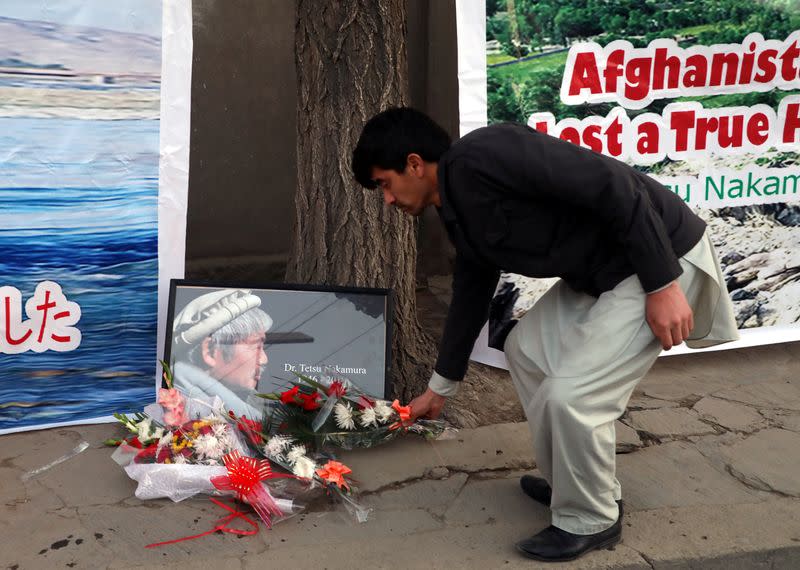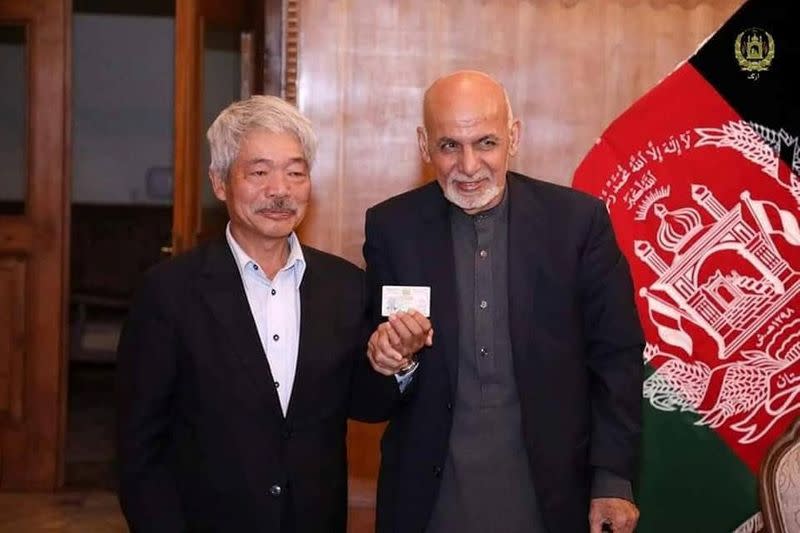Japanese doctor made the Afghan deserts green, until deadly attack
By Elaine Lies
TOKYO (Reuters) - Tetsu Nakamura, the Japanese doctor and aid worker killed in Afghanistan on Wednesday, was inspired to make the country's deserts green by the deaths of children in a clinic he ran in a drought-stricken rural area.
"You'd hear a child screaming in the waiting room, but by the time you got there they'd be dead," he told NHK television in an October programme.
"That happened almost every day. They were so malnourished that things like diarrhea could kill them ... My thinking was that if those patients had had clean water and enough to eat, they would have survived."
His death in a Wednesday attack by unknown gunmen who riddled the car he and five others were driving with bullets left both Afghanistan and Japan in mourning.
Born in western Japan, Nakamura, 73, trained as a doctor and answered a 1984 recruitment call to work in a clinic treating leprosy in the Pakistani city of Peshawar, attracted by the region's stark beauty.
He began treating Afghan refugees who were pouring over the border in the wake of the 1979 Soviet invasion of Afghanistan, which led to him opening a clinic in that country in 1991.
"I couldn't ignore the Afghans," he said.
On Thursday, a number of Afghan civil society activists gathered outside the Japanese embassy in Kabul for a candlelight vigil to pay tribute to Nakamura's humanitarian engagements in Afghanistan.
"Afghans will never forget his services for this country," said Rahimullah Samandar, a civil society activist. "The whole nation will love him and keep him in their memories."
Following a devastating 2000 drought which brought scores of starving and ill people to his clinic, he first helped bore wells and then came up with the idea of an irrigation canal, inspired by similarities between Japanese and Afghan rivers.
In 2003 - the same year Nakamura was awarded the Ramon Magsaysay Award, often called Asia's Nobel - construction began. After six grueling years of labour, much of it by hand and in temperatures as high as 50 Celsius, the canal was finally completed.
Since then, some 16,000 hectares (40,000 acres) of desert has been brought back to life, making Nakamura such a widely revered figure in Afghanistan that earlier this year he became the first foreigner awarded Afghan citizenship.
"As a doctor, nothing is better than healing patients and sending them home," and re-greening the desert did the same for rural Afghanistan, Nakamura told NHK
"A hospital treats patients one by one, but this helps an entire village...I love seeing a village that's been brought back to life."
(Additional reporting by Kiyoshi Takenaka. Editing by Lincoln Feast and Chizu Nomiyama)


